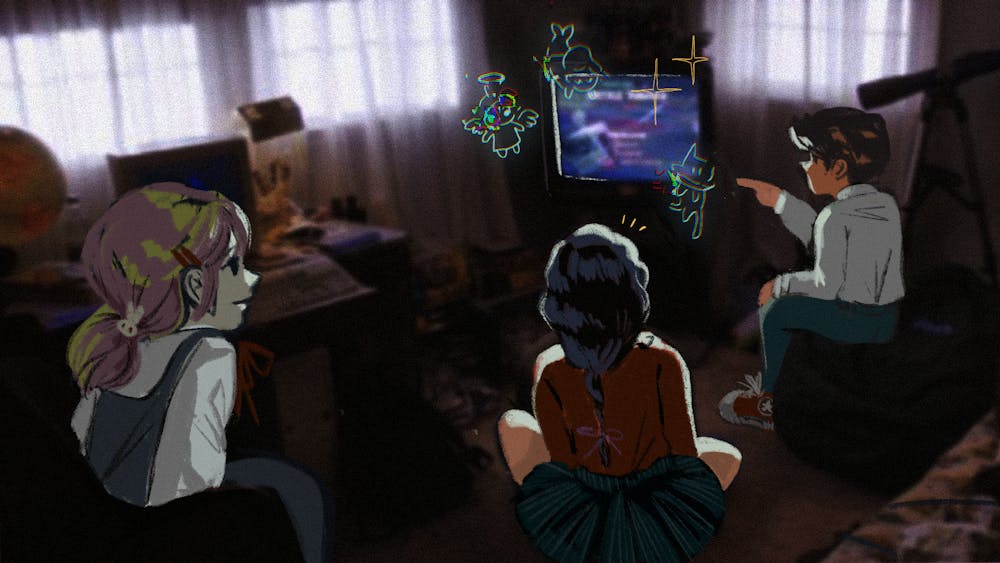Some individuals have comfort people while some have comfort blankets. Others, though, have comfort TV shows. Comfort shows—with their specific storylines, immersive worlds, and fictional characters that we grow to know so deeply—as a type of emotional support aren't a foreign concept, but they're arguably more important now than ever before, given the current climate of the world.
These parasocial relationships we're able to build with characters in TV shows influence us to think these characters are our real friends. That, in and of itself, can be comforting—especially if someone's feeling isolated or lonely. Looking at comfort shows through the lens of the COVID–19 pandemic sheds a whole new light on their usefulness and necessity.
Many things make comfort shows, well, comforting. Series that viewers have seen at least a couple of times before provide a sense of calmness in rewatching over and over again, as the show becomes predictable and thus gives an illusion of control over the storyline. These aspects of predictability and control are essential when thinking about the state of the world today. There's quite a bit of uncertainty, to say the least. Comfort shows, alternatively, give viewers the opportunity to immerse themselves in a universe where they know exactly what will happen. The storylines in the shows never change, no matter how many times you watch them, so there won’t be any surprises.
Another aspect to highlight is the ability certain TV shows have to help the viewer trivialize their own problems and feel better about their own lives. In other words, they're forced to put their own lives into perspective and reflect on their own reality. This is especially true of shows like Grey’s Anatomy, where catastrophe and earth shattering disaster seem to be at the forefront of each and every episode. Many Penn students cite Grey’s Anatomy as one of their comfort shows—perhaps it is because the extreme and horrific events portrayed in the show allow the viewer to realize that their problems aren’t as bad as they could be.
On the other hand, sometimes shows are comforting because they allow the viewer to be transported to another world entirely—a world that's funny, happy, and a blissful distraction from their everyday lives. If someone's going through a difficult time in their life and they want to run away to a new world where things don’t feel as heavy, TV shows can provide that for them. This is why so many Penn students say their comfort shows include sitcoms such as Friends, The Office, and Parks and Recreation.
Additionally, shows can make people feel less lonely through the parasocial relationships viewers often build with fictional characters on–screen. One Penn student said that they love to put on shows like Gossip Girl (the original, of course) while they're doing their laundry or cleaning their room as a kind of background noise. It makes them feel like they have a friend in the room with them, keeping them company. Also, people don’t feel like they have to fully mentally commit to such shows, because they've seen them before and know what happens. Instead, they can start and stop at any episode or season and know exactly what is happening. On top of this, they don’t feel like they need to put so much energy into paying attention to every single detail, which can take some of the pressure off of the viewing experience. It’s ironic that a leisure activity has turned into something with the potential to be stressful given the fast–paced, pressure–filled world we live in today. There is so much weighing on people’s minds all the time, and becoming overwhelmed and overstimulated is something that most people can relate to. Just the idea of starting a new TV show can seem daunting, so rewatching ones we have seen before reduces the cognitive load and gives our minds a chance to relax.
One student told me that their comfort show was New Girl. When asked why, she said, “It's my comfort show because it's dumb and it makes me laugh every time. I can pick it up or stop at any time and not get lost. I’m also never surprised or in suspense because I know what’s going to happen.” This answer represents so many of the things that comfort shows do for viewers. Yes, branching out and trying new things is good for you, but when it comes to peace of mind, sometimes leaning into the old and familiar can be just as good, if not better.

